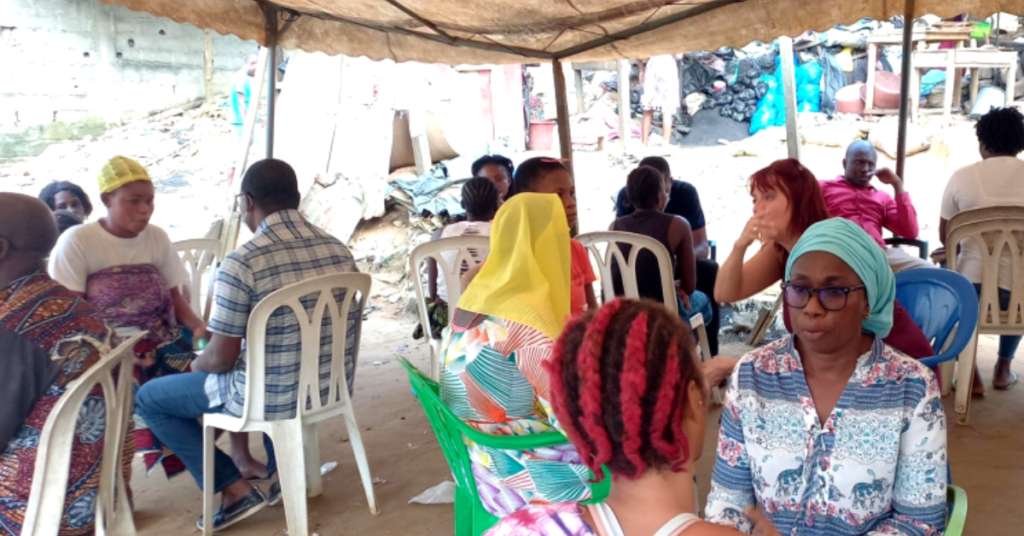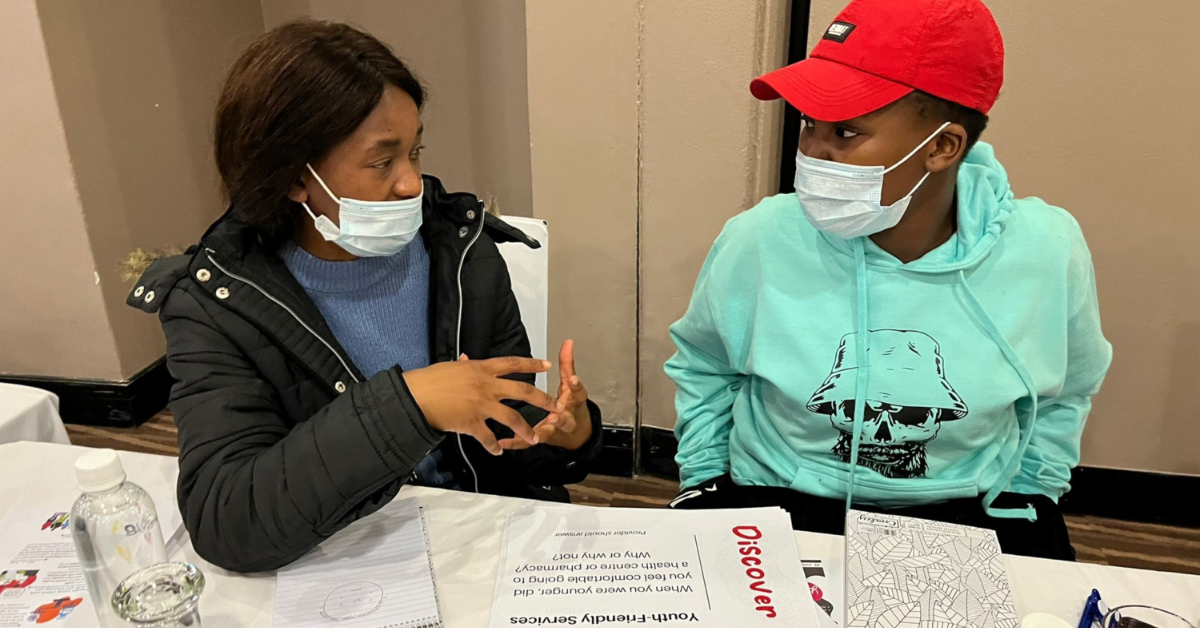Manya Dotson, Jhpiego
This post was first published on Breakthrough Action + Research.
The Empathways card activity is so simple to use, it almost conducts itself.
Empathways was originally designed to strengthen family planning service delivery by Breakthrough ACTION, a social and behavior change project funded by the United States Agency for International Development (USAID). It aims to increase health care providers’ empathy toward their young clients and foster more youth-centered service delivery.
Any two people can use Empathways together. But in the global HIV care, prevention, and treatment community, Jhpiego has leveraged an adapted version of the tool, using it to bring together groups of people who have relationships that are uncomfortable at best, and downright traumatizing at worst: (1) young people in need of sexual and reproductive health services and (2) healthcare providers.
Those of us whose work involves HIV have long known that healthcare providers’ behavior is determinant to the success of HIV prevention, care, and treatment interventions. For all the training, behavioral checklists, job-aids, supportive supervision, and values clarification we have attempted, we have yet to land a reliable strategy to support health workers to connect more naturally with young people. Until now.
Using the Empathways cards—whether using the online tool or printed locally from free PDFs—as a guide, pairs of providers and youths pledge to be honest, nonjudgmental, and respectful to one another. They promise to see each other as whole people, to listen, and to keep the conversation confidential. And then they take turns answering questions on the cards.
It starts light: Where are you from and what do you enjoy doing? What are a couple of goals you have for the next five years? Who inspires you and why?
The participants—young people and adults alike—giggle nervously, but soon they are fully engaged: listening, leaning in, finding things they have in common. And then the exchange goes deeper: How should a person show another person that they love them?
And then deeper, still: Who first talked with you about HIV? Sex? Contraceptives? Who influences your decisions to seek health care? What is the worst healthcare experience you’ve ever had? What should a healthcare worker’s goal be when helping a young person with HIV prevention?
Finally, the pairs—who are now friends—look at complex case studies together and problem solve.

The experience sparks a deep empathy that is so powerful, participants want copies of the cards to take home. They want to repeat the exercise with their own kids, with their parents, at church, and at the next community meeting. The pairs exchange WhatsApp numbers and take selfies together. Hugs and smiles abound.
And after the activity is finished, in Nigeria, Lesotho, South Africa, Côte d’Ivoire, we keep hearing comments like these:
- “Empathways was one of the most powerful experiences of my life.”
- “I have never had a conversation like this with anyone.”
- “I cannot believe how much we have in common.”
- “Today I have seen gaps in the care I provide to young people, and I know what I need to change. I want to change.”
- “I see now that health workers are just people too, and that their job is really hard! If I have an attitude going in, I’m making it all worse.”
- “I feel… love.”
- “I feel more inspired than I have felt in a long time.”
- “I loved thinking about these questions—I discovered things about myself!”
Jhpiego is just beginning to track some programmatic data around the impact of Empathways on client satisfaction and service delivery outcomes in Nigeria. But within the HIV care, prevention, and treatment community, Empathways is taking on a life of its own. In Nigeria, after experiencing Empathways in action just twice, the Nigerian National Agency for the Control of AIDS made the activity a mandatory training module for all healthcare providers who will be prescribing pre-exposure prophylaxis (PrEP) medications. A global study on PrEP method choice (The Catalyst) is trying the activity with project staff and an international group of youth advisors; afterward they will use Empathways as a foundational training activity for all participating healthcare workers. This study is operated by the Maximizing Options to Advance Informed Choice for HIV Prevention (MOSAIC) project, funded by USAID and the U.S. President’s AIDS Relief Fund.
Both MOSAIC and two multi-country HIV care, prevention, and treatment programs—Reaching Impact, Saturation, and Epidemic Control (RISE) and Meeting Targets and Maintaining HIV Epidemic Control—introduced the use of Empathways in their stakeholder communities. The global HIV care, prevention, and treatment community is finding Empathways to be a flexible and useful tool. Here are just a few ways this community is using Empathways:
- As a first step in a healthcare counseling protocol: at the start of a counseling visit with a young client, providers are asked to say the pledge and ask and answer a question together to break the ice.
- As a foundational activity in human-centered design workshops: Empathways is a beautifully condensed way to build trust, awaken empathy, and uncover insights about sensitive topics. In Lesotho, after using Empathways, mixed groups of nurses and young women worked together to co-design an improved, youth-centered HIV service counseling experience that would work better for everyone involved.
- As an onboarding/orientation experience for program staff: In Côte d’Ivoire, Jhpiego’s RISE project leaders used an abbreviated version of Empathways with young women in an informal community in Abidjan. They left the exercise inspired and recommitted to finding the best ways to serve this vulnerable community. Empathy is a powerful motivator, and motivated staff do better work.
- As a training exercise for health workers working with vulnerable groups other than young people (e.g., men who have sex with men, transgender women, sex workers).
- As a bonding and trust-building experience: A single Empathways question answered by each person on a team builds relationships and trust.
Empathways is a flexible, fun, and meaningful tool that can be easily adapted to a wide range of circumstances. As a mother who is always keen to connect with my adolescent daughter, I’m planning to use it at dinner tonight!
Featured Image: A healthcare provider in Maseru, Lesotho, uses Empathways with a young woman before embarking on a session to co-design an HIV-prevention counseling experience that would be better for both providers and young people. The activity was supported through MOSAIC.


